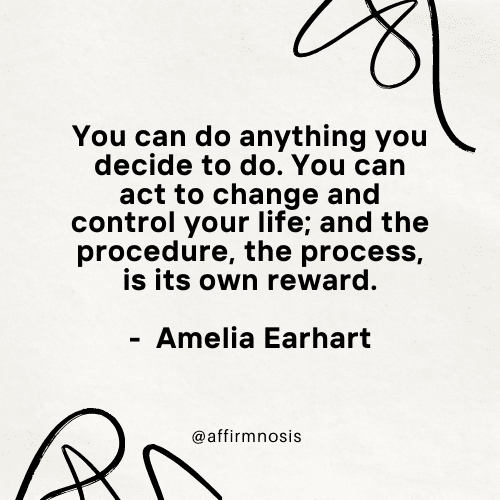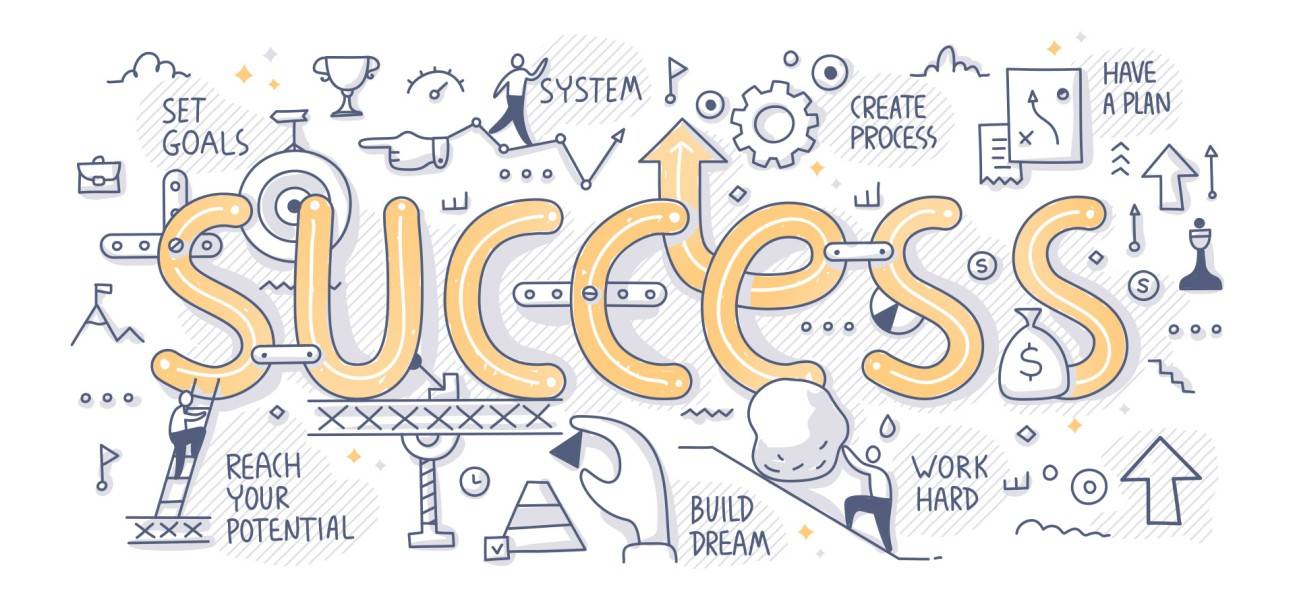When it comes to achieving success, most people focus on the outcome they desire. Whether it’s getting a promotion at work or losing weight, we tend to fixate on the end result rather than what it takes to get there.
However, research has shown that setting and pursuing process goals can be more effective in helping us reach our desired outcomes. This article will explore the concept of process goals, why they matter in achieving success, and how to effectively set and implement them.
Why Process Goals Matter for Achieving Success
Process goals are focused on the actions and behaviors necessary to achieve a particular goal or outcome. Unlike outcome goals which are concerned with the end result, process goals are centered around specific activities or steps that lead towards that result.
For example, instead of setting an outcome goal of losing 20 pounds in a month, a process goal would be to exercise for 30 minutes every day and eat healthy foods.
The Importance of Process Goals in Achieving Success
There are several reasons why process goals are essential when it comes to achieving success. One key benefit is that they help us focus on the present rather than being overly concerned with future outcomes.
By focusing on what we can control right now – our actions – we are more likely to make progress towards our desired outcome.
Another advantage of process goals is that they encourage progress and growth over perfectionism. When we set lofty outcome goals without considering the steps required to achieve them, we can become discouraged when results don’t come as quickly or easily as expected.
Process goals enable us to break down larger objectives into smaller, more manageable tasks that allow for steady progress towards our ultimate goal. Process goals increase motivation and confidence by providing tangible evidence of progress along the way.
By tracking specific actions taken each day, week, or month, we are more likely to see improvements and feel a sense of accomplishment. This progress reinforces positive behaviors and keeps us motivated to continue pursuing our goals.
Understanding Process Goals
Definition and Explanation of Process Goals
Process goals are the specific actions we take to achieve a particular outcome. They focus on the journey rather than the destination, and they help us to break down larger goals into smaller, more manageable pieces.
Process goals are often related to our daily habits and routines, and they involve actions that we can control.
For example, if your goal is to lose weight, a process goal might be to exercise for 30 minutes every day or to track your food intake using a journal or app. These process goals don’t necessarily guarantee weight loss, but they do increase the likelihood of achieving that outcome.
How They Differ from Outcome Goals
While outcome goals focus on the end result (such as winning a race or getting a promotion), process goals focus on the steps we need to take in order to get there. Outcome goals can be motivating but are often beyond our control, while process goals provide us with tangible actions that we can take on a daily basis.
For example, if you set an outcome goal of winning a writing competition, you may not have full control over whether or not you actually win. However, setting process goals such as writing for 30 minutes every day or submitting five pieces of writing per month can help you develop the skills needed for success.
Examples of Process Goals
There are many different types of process goals depending on what area of life you’re focusing on. Here are some examples: – If your goal is to build muscle: perform strength training exercises three times per week
– If your goal is to save money: track all expenses using an app or spreadsheet
– If your goal is to improve mental health: meditate for 10 minutes each morning
The key is making sure these processes align with your overall desired outcome and are specific and measurable. By setting and achieving these smaller goals, you build momentum towards the larger goal and can celebrate your progress along the way.

Benefits of Process Goals
Whether you are an athlete, a student, or a business professional, setting process goals is essential to achieving success. Here are three key benefits of utilizing process goals:
Helps to Focus on the Present
Process goals help us focus on the present moment and take action in the direction of our dreams. By setting specific and measurable process goals, we can break down larger tasks into smaller ones that are easier to manage and accomplish.
This helps us stay motivated and engaged in the present moment, rather than being overwhelmed by the big picture.
When we focus too much on achieving outcomes or end results without tracking our progress along the way with specific actions, it can be easy to become disheartened if things don’t go as planned.
Process goals can help prevent this by keeping our attention focused on taking concrete steps towards our goal every day.
Encourages Progress and Growth
Process goals encourage progress and growth by providing small victories along the way that build motivation and confidence. Each time we complete a task or reach a milestone on our action plan, we feel more motivated to keep moving forward.
In addition, process goals provide opportunities for learning from mistakes or setbacks.
Instead of feeling like failures when something doesn’t go as planned, we can use these experiences as opportunities for growth by adjusting our approach accordingly. By focusing on what we can control – namely our own actions – rather than worrying about outcomes outside of our control such as external validation or feedback from others – process goals create an environment in which progress is always possible.
Increases Motivation and Confidence
Setting process goals increases motivation because it helps us see tangible progress towards achieving bigger objectives over time. When we break down bigger objectives into actionable steps that are achievable within shorter periods of time (hours, days or weeks), then hitting several targets builds momentum, enhances our confidence and raises our self-morale.
Moreover, setting process goals can help us identify our strengths and weaknesses, which in turn helps to boost confidence.
When we see progress in areas that we previously struggled with or where we have set goals for improvement, it provides a sense of accomplishment that reinforces our belief in ourselves and what we’re capable of achieving. The benefits of incorporating process goals into your daily life are clear.
By focusing on the actions you can take to achieve your larger objectives and breaking those down into specific achievable steps for yourself, you’ll stay motivated and engaged while making steady progress towards bigger milestones. The rewards for your perseverance will be growth, improvement and an increasingly confident sense of purpose.
Setting Effective Process Goals
Identifying areas that need improvement
Before setting process goals, it’s important to identify the areas of your life or work that need improvement. Take some time to reflect on your habits, routines, and daily tasks. Consider what you want to achieve and what obstacles are holding you back.
Ask yourself questions like: What am I struggling with? Where do I feel stuck?
What do I want to change? For example, if you’re a writer who struggles with procrastination, your area of improvement may be time-management or developing a consistent writing routine.
If you’re an athlete looking to improve performance, your area of improvement may be strength training or nutrition. Once you’ve identified the areas that need improvement, move on to creating specific and measurable goals.
Creating specific and measurable goals
Process goals should be specific and measurable so that progress can be tracked over time. A vague goal like “Improve my writing” is not helpful because it’s difficult to measure progress.
Instead, a specific goal like “Write for 30 minutes every day” is more effective because progress can be tracked by measuring the amount of time spent writing each day. When creating process goals, use the acronym SMART as a guideline:
– Specific: Clearly define what you want to achieve. – Measurable: Establish how progress will be measured.
– Achievable: Set realistic goals that are possible to accomplish. – Relevant: Ensure the goal aligns with long-term objectives.
– Time-bound: Set a deadline for achieving the goal. For example, a SMART goal for improving writing skills could be:
“Write 500 words every day for one month.” This goal is specific (500 words), measurable (every day), achievable (realistic amount of work), relevant (improving writing skills), and time-bound (one month).
Establishing a timeline for achieving the goal
It’s important to establish a timeline for achieving process goals. Without a deadline, goals can become vague and lose their sense of urgency. A timeline adds accountability and helps to measure progress.
When establishing a timeline, consider what steps need to be taken along the way and how long each step will take. Break down larger goals into smaller steps with short-term deadlines.
This will prevent overwhelm and allow you to focus on one step at a time. For example, if your process goal is to write 500 words every day for one month, establish a schedule that breaks down the goal into daily writing sessions with specific times set aside for writing.
Create milestones along the way, such as reaching 10,000 words by the end of week two or completing a chapter by the end of week four.
By identifying areas that need improvement, creating specific and measurable goals, and establishing a timeline for achieving those goals, you’ll be well on your way to incorporating effective process goals into your daily life or work routine.
Implementing Process Goals
Developing an Action Plan
Once you have identified your process goals, the next step in implementing them is to develop an action plan. This plan should outline the specific steps that you will take to achieve your goals.
It is important to be as detailed as possible and to break down larger goals into smaller, more manageable tasks. For example, if your process goal is to improve your physical fitness, your action plan might include tasks such as joining a gym or fitness class, creating a weekly workout schedule, and tracking progress through various methods such as recording weights lifted or running time.
Creating Accountability Measures to Track Progress
One of the most effective ways to stay motivated towards achieving process goals is to create accountability measures that track progress. This can be done in various ways including setting up check-ins with a coach or mentor, sharing progress with friends or family members who offer support and encouragement, or using technology tools designed for this purpose.
Whatever method you choose, it’s essential that you establish clear expectations for yourself and others involved in tracking progress. This helps ensure everyone stays on track towards achieving their goals.
Utilizing Tools such as Journaling or Visualization Techniques
In addition to developing an action plan and creating accountability measures, utilizing tools such as journaling or visualization techniques can also be helpful in achieving process goals.
Journaling allows individuals to reflect on their progress regularly while also providing an opportunity for self-reflection and introspection.
Visualization techniques are another powerful tool that can help individuals stay motivated by imagining themselves successfully achieving their goals. For example, if your process goal is to improve public speaking skills, visualization techniques could involve imagining oneself delivering a successful speech in front of a large audience.
Similarly, journaling could involve reflecting on what worked well during past speeches and identifying areas for improvement in future presentations. By utilizing these tools, individuals can stay focused on their process goals and maintain motivation over time.
Maintaining Progress with Process Goals
Celebrating Small Successes Along the Way
One of the biggest benefits of process goals is that they allow you to focus on the progress you are making, rather than just the end result. This means that even small steps forward should be celebrated as a success.
By acknowledging and celebrating these small successes, you’ll be able to maintain your motivation and momentum over time. Celebrating doesn’t have to be anything big or elaborate.
Simply taking a moment to recognize your achievements and give yourself a little pat on the back can go a long way in keeping you motivated. You could also reward yourself with something small, like your favorite snack or an episode of your favorite TV show.
Remember that every step forward is important, no matter how small it may seem. Celebrating these successes will help keep you motivated and focused on achieving your larger goals.
Adjusting Goals as Needed
As you work towards your process goals, it’s important to remain flexible and open to adjusting them as needed. This means being willing to reevaluate and potentially change your approach if something isn’t working or if circumstances change.
For example, if one of your process goals was to exercise for 30 minutes every day but you find that this is causing too much stress in other areas of your life, consider adjusting it to 20 minutes instead. Or if you find that a particular approach isn’t getting you the results you want, try something new.
The key here is not to get too attached to any one specific goal or approach. Instead, remain open-minded and willing to adapt as needed in order to ensure continued progress towards success.
Continuing to Prioritize Process Over Outcome
It’s important not lose sight of why process goals are so effective in the first place: because they focus on the process rather than the outcome. While achieving your ultimate goal is certainly important, it’s the daily habits and behaviors that will get you there.
This means continuing to prioritize your process goals even as you get closer to achieving your outcome goals. By doing so, you’ll be able to maintain the habits and behaviors that got you there in the first place.
Remember that success isn’t just about achieving a specific outcome – it’s about cultivating habits and behaviors that support your long-term growth and development. By prioritizing process over outcome, you’ll be setting yourself up for sustained success over time.
Conclusion
Summary of Main Points
Process goals are specific, measurable, and actionable steps that an individual takes to achieve a larger goal. The emphasis is on the process rather than the outcome. By focusing on the present moment and smaller accomplishments along the way, individuals are more likely to achieve long-term success.
The benefits of incorporating process goals into daily life include increased motivation and confidence, improved focus on personal growth and progress, and decreased anxiety about performance outcomes. By setting effective process goals that are tailored to individual needs and abilities, individuals can stay accountable to their progress while still being compassionate with themselves.
Importance of Incorporating Process Goals into Daily Life
Setting effective process goals is essential for anyone looking to make meaningful progress towards their long-term objectives. Beyond just celebrating small successes along the way, this approach helps individuals develop a mindset focused on growth rather than stagnation or failure.
By incorporating process goals into daily life routines—whether through journaling exercises or visualization techniques—individuals can better stay accountable to their progress while still being compassionate with themselves during times of difficulty. This approach promotes self-discovery without putting unrealistic expectations on oneself.
Encouragement to Take Action Towards Setting and Achieving Effective Process Goals
Setting effective process goals is an important first step for anyone looking to make meaningful progress in their lives. With an emphasis on specific actions that promote personal growth over short-term results alone, individuals gain a sense of control over their lives while also building confidence in their ability to make steady progress towards larger objectives.
Whether you’re looking for a boost in motivation or simply seeking a more structured approach towards achieving your dreams, taking action towards setting and achieving effective process goals is well worth committing your time and energy into doing so!




























































